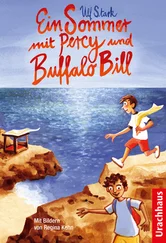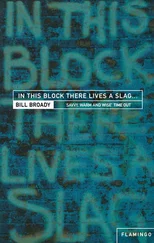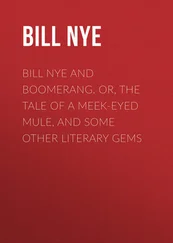On the last day of the Europeans, the night of your sixteenth birthday, you lost what Mum had always called Your Jewel. You’d got properly drunk for the first time, after an evening of party games – Up Jenkyns!, Dumb Crambo, Animal & Stick – spiced with Draconian booze forfeits. Coach helped you to your room, then kissed you, his tongue exploring your teeth and gums like a slow-crawling snail, and you realized with a rancid choke that the characteristic smell on Mum’s breath was the same as his – gin. He began twiddling your nipples, as if trying to fine-tune a radio to a fading signal: as he loosened your clothing and precisely arranged your limbs you wondered if you were moving on to a new section of Buck Dawson’s ‘Dry Land Exercises’. ‘I’ve been waiting eight years for this moment,’ said Coach. You couldn’t recall much of what happened next: he chose to interpret your lapses into unconsciousness as signs of excess ecstasy – likewise, presumably, your vomiting. Next morning he was grumpy and suspicious because you hadn’t bled: you nearly replied that you only did that when you got excited. He insisted on photographing you, naked and shivering, on the Latissimus Machine. It never occurred to you to report him, but you did wonder where the usually eagle-eyed chaperones had been during all this. You didn’t feel particularly different: just slightly heavier in the pool, as if you were shipping a little more water, and for a few days you had a strange sensation of cobwebs brushing your face. When Coach did try again, back at school, it was without much enthusiasm: he seemed almost relieved when you pushed him away – being the first was all he had really cared about.
‘Being first is what matters,’ said Coach. ‘Records will always be broken, but a medal is forever, is history.’ The Commonwealth Games were coming up again: the last remnant of Empire, of colonialism and imperialism – the final redoubt of sportsmanship and fair play. Now that you had a real chance of a silver – maybe even a gold – just doing your time, doing your time was suddenly no longer enough. It was now that Coach called on his full motivational skills: he gave you photographs of your main rivals and made you deface their fresh, smiling faces with felt-penned duelling scars and large Pierrot-style teardrops. At the last practice, an ASA bigwig with a white moustache appeared and gave an interminable speech which ended, ‘It’s the spirit of the thing that counts: it’s not the winning but the taking part.’
‘You heard the nice man,’ said Coach afterwards, ‘it’s not the winning it’s the taking apart … the old fart!’
Back in London for a week you were quite unable to follow Coach’s instructions to taper – to stay out of the water, storing up extra energy for release on the day. ‘You need your speed! Need your speed!’ – but you were as hooked on your weekly 75,000 metres as Mum was on her hourly toper’s visits to the bathroom. During this stay you discovered her bottle of Gordon’s floating inside the toilet cistern. Disguised in an old swim-cap, you sneaked into small pools where no one knew you: being back in the water with normal people again was like swimming through a lunatic asylum. You even tried the Ladies’ Pond at Kenwood, but a short-haired woman smiled at you and called you ‘sister’ so you fled in mortal fear of sapphism. ‘Bad news,’ said Dad, as you came in, ‘Russia and the GDR have just applied to join the Commonwealth.’: your heart sank before you realized he was joking, although he hadn’t smiled.
The Commonwealth Games were always the best one, the most relaxed – being only a Grade B terrorist target. On the first morning, while your team-mates were having fun throwing furniture into the practice pool then fishing it out again, you dodged the chaperones and wandered away from the Games Village. Although London born and bred it was as if you’d never seen a city before: turning left-right-left-right, you cut across the streams of machines and people, through the heat-shimmering air, under a blue-black sky – the welkin! – that seemed to balance on the tops of the tallest buildings like a precarious lid. The hairs in your nose tickled, you felt light-headed with being alone for once – half-lost, free.
Just when you’d begun to feel tired, a small park presented itself. After buying a sandwich and a styrofoam coffee at a stall by the gate you sat down on grass that was thick, clean and dry like grown-out Astroturf. At its centre was the statue of a standing figure, gesturing with an extravagantly-plumed hat, his expression at once awestruck and proprietorial. You didn’t recognize the name but you knew he must have been the man who had discovered this park. It was the best sandwich you’d ever eaten: some sort of diced sausage, hard and salty, with something sourish -– olives? – something sweet – capsicum? – and the distinctive metallic tang of watercress. Its crisp top was studded with unfamiliar seeds and husks. When you opened it up, however, the inside looked so revolting – a viscous smear of colours – that you couldn’t face another mouthful.
The park was full of young office workers on their lunch breaks. They’d formed two large groups, one poring over a newspaper crossword, the other devoted to what appeared to be a glitteringly choreographed mass flirtation. Eyes sparkled and teeth gleamed in their tanned faces: the vivid floral designs on the girls’ dresses were echoed by the men’s ties. There was one boy who wasn’t smiling, who sat slightly apart from the others. He was watching you, his chin resting on his knees: you moved to tug down your skirt hem but then didn’t bother. You lay on your back, then rolled over. Although every flower petal in front of you remained in sharp focus, the whole parterre was shifting in the heat like a kaleidoscope. It was as if, after many years adrift, you’d finally been cast up on a friendly shore. All you wanted was for the Chalkhill Blues to descend, but five thousand miles was too far for them to fly.
Then there was a high, shrill sound: all the workers had linked arms and were marching out of the park, whistling the Seven Dwarves’ Hi-Ho-Hi-Ho song. Dad always called offices ‘Concentration camps of the soul’, but you watched them go as if they were the gods returning to Valhalla over the Rainbow Bridge. The serious boy looked back once. You imagined their destination: an office full of lovers, light-heartedly but seriously doing mysterious but important things with computers – things to do with charity, fashion or the news.
In the last school production you’d played Miranda in The Tempest: now you recalled one of the bits for which you hadn’t needed the prompt:
O wonder
Конец ознакомительного фрагмента.
Текст предоставлен ООО «ЛитРес».
Прочитайте эту книгу целиком, купив полную легальную версию на ЛитРес.
Безопасно оплатить книгу можно банковской картой Visa, MasterCard, Maestro, со счета мобильного телефона, с платежного терминала, в салоне МТС или Связной, через PayPal, WebMoney, Яндекс.Деньги, QIWI Кошелек, бонусными картами или другим удобным Вам способом.












